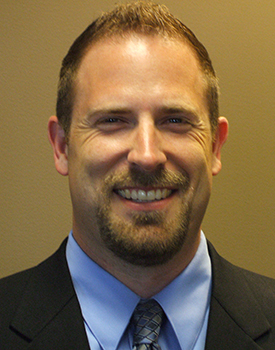J. Boger Hessing, PSB - Princeville State Bank

Small businesses account for 99.7 percent of all employers in this country, according to the Small Business Administration, and they can be at special risk for fraud. Employees, customers, vendors and others—virtually anyone who has access to a business’ financial information—can perpetrate fraud, and it’s easier for them to obtain information than you may think.
The good news is that there is a lot that small businesses can do to protect themselves. Here are some of the most important things to do:
- Keep cancelled checks and bank statements under lock and key. To you, they may seem like old records, collecting dust in a back room. But placed in the wrong hands, they can be solid gold. To protect both you and your customers from identify theft, old checks, bank statements and related materials should be kept locked away or appropriately destroyed. This includes old computers, hard drives, CD drives and floppies.
- Maintain separation of duties. Separation of duties is perhaps the most fundamental rule of internal controls. It can also be one of the most difficult and costly to follow. Most people understand the basic idea: no individual should control more than one phase of a financial transaction or operation. The person who writes checks or makes deposits shouldn’t also be the one reconciling the bank account. If duties are kept separate, deliberate fraud would require the collusion of two or more individuals.
A business owner must also be vigilant when signing the checks placed before them. More than one owner has inadvertently paid to redecorate an employee’s home because he or she was distracted during the check-signing process.
Considering the millions of dollars that small businesses lose to fraud each year, the extra expense of hiring an accountant or other third party to administer payroll or handle other financial issues may be worth it. - Take advantage of the latest fraud protection tools. The good news is that the same fraud protection tools originally created for large companies are now available to small businesses. For companies short on staff, these tools can also help maintain separation of duties. Consider a bank lockbox, which allows a small business to have its incoming payments collected at a secure post office box and then transported directly to a bank for processing.
Similarly, remote deposit enables a small business to deposit checks into its bank account from the office by scanning a digital image of a check onto a computer and then transmitting the image to the bank. This eliminates the need to physically deliver the check to the bank and reduces the risk of checks being lost or altered en route. It is also common for debt-ridden employees to use a small business’ checking account information to pay their personal bills electronically. You can prevent others from fraudulently accessing your account with an Automated Clearing House (ACH) debit filter that eliminates unauthorized electronic payments from your accounts. With the ACH block, you identify the persons authorized to take money from your account electronically.
While ACH block helps protect against electronic fraud, Positive Pay helps prevent paper check altering and forgery. You provide your bank with an electronic file each day of all the checks you issue. The bank then matches the paid checks against the file. This process allows the bank to alert you if the amount or payee’s name on a check has been altered, and to refuse payment of that check. - Monitor your account activity daily. Much can be done to stop fraud before it has a chance to occur. Still, it’s important to watch for fraud daily, particularly during the account reconciliation process.
Online banking has made it easier for everyone to monitor banking activities and balances every day. Just be aware—if you are viewing your account(s) online, remember that even though account numbers and amounts may match, the payee’s name on a check may have been altered. If a perpetrator changes payee information, you will still need a service like Positive Pay to catch it.
To have the best chance of catching fraud, accounts should always be reconciled within a reasonable number of days. Check with your bank to determine its requirements.
The bottom line for small business owners is be aware. Yes, you’re busy, but a little vigilance and caution exercised on a daily basis may reap great rewards in the long run. It will also allow you to keep your primary focus where it needs to be—providing valuable products or services to your customers. TPW
